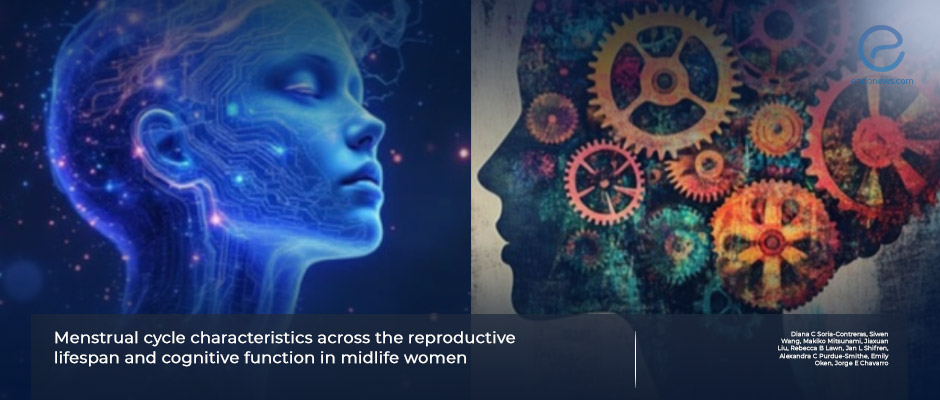Impact of Menstrual Cycle on Cognitive Function in Midlife Women
Feb 21, 2025
Menstrual irregularities can cause the impairment of cognitive functions.
Key Points
Importance:
- Menstrual cycle characteristics may reflect hormonal exposures linked to cognitive health, yet evidence on the association with cognitive function remains limited.
Highlights:
- The study examines the link between menstrual cycle characteristics and cognitive function in midlife women, highlighting hormonal and cardiovascular factors that may impact cognitive health.
What's done here:
- This study investigated associations of menstrual cycle characteristics at 3 reproductive stages with cognitive function in midlife women.
- Analyzed data from the Nurses' Health Study II, involving almost 20K participants with cognitive assessments between 2014-2022.
- Exposures included cycle regularity and length at different life stages (namely 14-17, 18-22, 29-46 years).
- Cognitive function was assessed using the Cogstate Brief Battery, focusing on psychomotor speed, attention, and learning/working memory.
Key Results:
- Irregular cycles at 29-46 years were associated with lower learning/working memory scores.
- Cycle length ≤25 days at 18-22 years was linked to lower cognitive performance.
- Women with regular cycles at 14-17 or 18-22 years but later became irregular also had lower learning/working memory scores.
- There was no association between menstrual characteristics and cognitive functions at 14-17 and 18-22 years.
Lay Summary
Dementia, which affects women at more than 1.7 times the rate of men, continues to be a growing health concern, with potential links to hormonal changes.
Estrogen, known for its neuroprotective effects, influences cognitive functions such as verbal memory, fluency, and fine motor skills. Disruptions in the hypothalamic-pituitary-ovarian axis and hormone imbalances can reduce estrogen levels, potentially contributing to cognitive decline.
A recent retrospective study by Soria-Contreras et al. from Harvard T.H. Chan School of Public Health examined the relationship between menstrual cycle characteristics and cognitive function using data from the Nurses' Health Study II.
The cohort included 116,429 female nurses aged 25-49, and the analysis focused on 19,904 participants who reported their cycle characteristics and completed cognitive assessments.
The study found that women with irregular cycles at ages 29-46 and those with cycles longer than 25 days at ages 18-22 had lower learning/working memory scores. These women performed equivalently to those 1.7 years older in terms of cognitive decline.
The findings, published in the American Journal of Obstetrics and Gynecology, highlight the importance of menstrual cycle characteristics as potential indicators of cognitive health, with memory impairment being a leading cause of dementia.
Research Source: https://pubmed.ncbi.nlm.nih.gov/39863036/
menstrual cycle cognitive health cognitive function cycle length cycle regularity irregular cycle women health endometriosis.

